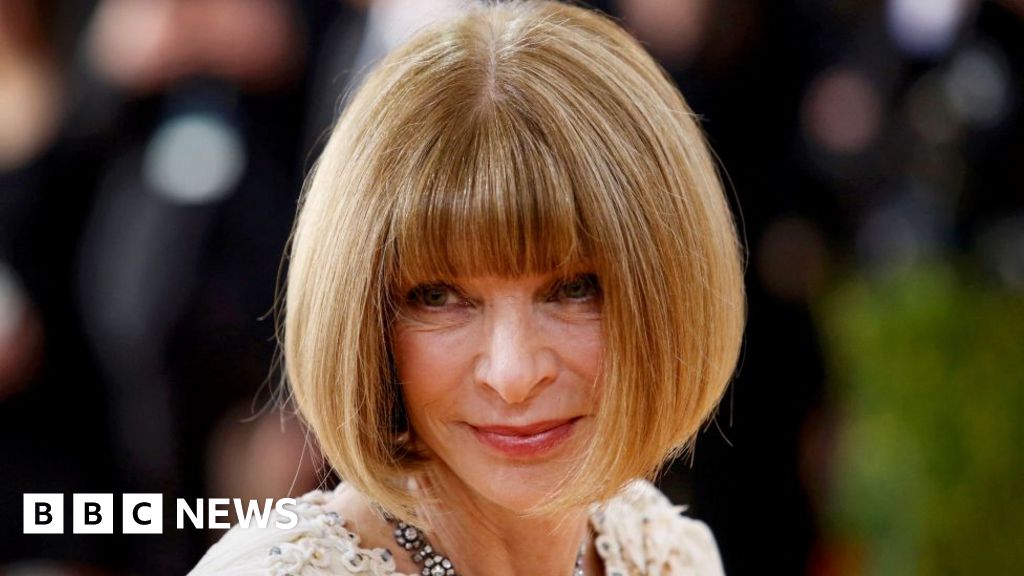Anna Wintour's legacy and who might replace her as Vogue editor

Anna Wintour Steps Back as Vogue Editor-in-Chief After 37 Years Anna Wintour, the iconic editor-in-chief of US Vogue, is stepping down after 37 years at the helm. While she will remain Chief Content Officer of Condé Nast, overseeing titles like GQ, Wired, and Tatler, her departure from the editor's chair marks the end of a transformative era for the fashion magazine.
A Legacy of Disruption and Democratization Wintour's tenure is widely credited with revolutionizing Vogue, shifting its focus from high-society elegance to a more accessible and celebrity-driven approach. Her first cover in October 1988, featuring a model in jeans and a couture jacket, signaled a departure from the magazine's traditional, highly-stylized aesthetic. This willingness to break with convention defined her leadership. "She was the first to make fashion a global, cultural industry," said Marian Kwei, a stylist and Vogue contributor, to BBC Radio 4's Today program. "She took away the elitism that was in fashion, and brought a democratisation, and made fashion this party that everybody else was invited to."
From Supermodels to Social Media: Navigating Shifting Landscapes Over the decades, Wintour steered Vogue through significant cultural shifts, from the rise of supermodels and grunge fashion to the explosion of celebrity culture and the digital age. She embraced online platforms and social media, although not without challenges. The rise of influencers and the fast-paced nature of online content creation presented new competition for the established print publication. In 2018, designer Philip Plein questioned Vogue's relevance by comparing its readership to Kim Kardashian's Instagram followers, highlighting the changing dynamics of the fashion industry.
Controversies and Cultural Impact Wintour's career has not been without its controversies. She faced criticism from animal rights groups for wearing fur (a practice she has since abandoned) and faced accusations of cultural insensitivity, such as the 2008 LeBron James and Gisele Bundchen cover, which sparked debate about racial stereotypes. Despite these challenges, Wintour's influence on fashion and popular culture is undeniable. She became a cultural icon herself, known for her signature bob haircut and sunglasses. Her persona even inspired the character of Miranda Priestly in the film "The Devil Wears Prada." David Yelland, former editor of The Sun, told the BBC, "She's not just an editor, she's the high priestess of our time." He pointed to Wintour's influence on the branding of figures like Kim Kardashian, Lauren Sanchez, and even the Trumps, highlighting her power to shape public perception.
Who Will Fill Her Shoes? The Succession Question The question of who will succeed Wintour as editor-in-chief is a subject of much speculation. Several names have been floated as potential candidates, each bringing different strengths and perspectives to the role. Potential Successors
Eva Chen: As Director of Fashion Partnerships for Instagram, Chen brings a strong understanding of the digital landscape and social media's influence on fashion. Chioma Nnadi: The current head of editorial content at British Vogue, Nnadi is considered a Wintour protege and has been described as "waiting in the wings." Amy Astley: The former head of Teen Vogue, Astley continues to work for Condé Nast on other publications. Chloe Schama and Chloe Malle: Both senior editors at Vogue, they represent potential internal candidates with deep knowledge of the magazine's operations. Bee Shaffer Carrozzini: Wintour's daughter, a film producer, could represent a continuation of the family's legacy at Vogue.
Expert Analysis: Navigating the Future of Vogue Dr. Kate Strasdin, senior lecturer at Falmouth University’s Fashion and Textile Institute, emphasizes the challenges facing Wintour's successor. "This is a challenging era for print media," she explains. "Vogue's social media platforms are frequently under fire for the seemingly relentless celebrity content which critics decry as diluting the mission of Vogue." She adds that the new editor must navigate the complex issues of sustainability, plagiarism, and labor conditions within the fashion industry, while also maintaining Vogue's relevance in a rapidly changing media landscape. "As ever fashion is regarded as both superficial and economically valuable," says Dr Strasdin. "Anna Wintour has had to tread the tightrope of maintaining relevance as far as style is concerned at the very same time that fashion has had to undergo re-evaluation in relation to sustainability, plagiarism and labour conditions. I think these are the very real concerns that her successor will have to navigate."
Looking Ahead While Anna Wintour's departure from the editor-in-chief role marks the end of an era, her continued involvement as Chief Content Officer suggests that her influence will continue to shape the direction of Condé Nast's publications. The search for her successor at Vogue will be closely watched, as the magazine prepares to enter a new chapter in its history.
Originally sourced from: BBC Entertainment
